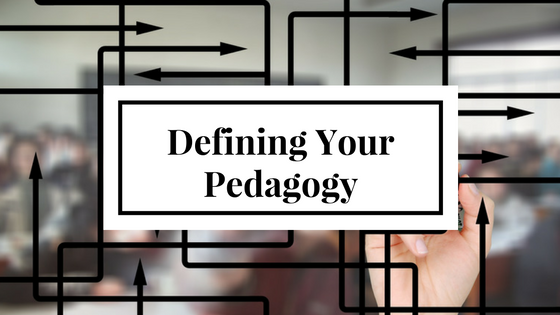
The idea of selecting proper pedagogy as a professor has been stressed in academic institutions in recent years; studies have correlated higher student performance with classroom environments in which the professors are able to choose effective pedagogies based on their natural teaching styles, student ability, and teaching preferences.
What, then, is pedagogy? Typically, the term is understood as “the art, science, or profession of teaching” (Merriam-Webster). Although there are many forms of pedagogy, the overall concept requires “not only the promotion of learning in a narrow sense but it also entails a process of negotiating identities between teachers and students. An image of the society that students will graduate into and the kind of contributions they can make to that society is embedded implicitly in the interactions between educators and students” (Cummins, 2006, 37). Pedagogy has much less to do with simple memorization as it does with application.
Pedagogy tends to be divided amongst two schools of thought: transmission, with the main focus being skills and information memorization, and social constructivism, with a focus on dialogue and collaboration (38). These variations of focus translate into different classroom environments. As a professor, what is the best pedagogical method to employ for student success?
In reality, the best type of pedagogy is the one that factors in considerations to both the professor’s style and the students’ needs. According to the National College for School Leadership’s 2012 study on effective pedagogy, there are nine extant themes for enlisting effective pedagogical practices (4):
- Effective pedagogies give serious consideration to pupil voice.
- Effective pedagogies depend on behavior (what teachers do), knowledge and understanding (what teachers know) and beliefs (why teachers act as they do).
- Effective pedagogies involve clear thinking about longer term learning outcomes as well as short-term goals.
- Effective pedagogies build on pupils’ prior learning and experience.
- Effective pedagogies involve scaffolding pupil learning.
- Effective pedagogies involve a range of techniques, including whole-class and structured group work, guided learning and individual activity.
- Effective pedagogies focus on developing higher order thinking and metacognition, and make good use of dialogue and questioning in order to do so.
- Effective pedagogies embed assessment for learning.
- Effective pedagogies are inclusive and take the diverse needs of a range of learners, as well as matters of student equity, into account.
Overall, the literature on pedagogies is inconclusive as to which method is definitively proven to be the most effective. However, when considerations are given to the complexities of a classroom, assuming an effective pedagogical style is less about rigid “correctness” of form, but rather about fluidity and responsiveness. Employing a combination of transmission-based and constructivism-based pedagogy, based on your own preferences and student needs, will hardly err in the classroom.

